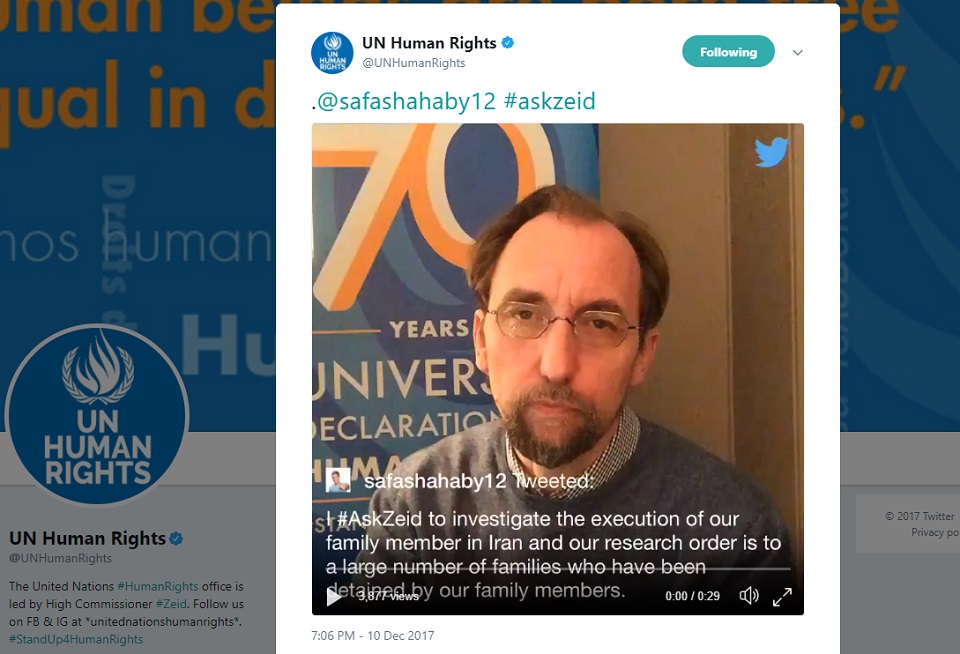Zeid Ra’ad Al Hussein, the United Nations High Commissioner for Human Rights, has said that he has asked his office to conduct a deeper investigation into the 1988 massacre of political prisoners in Iran.
Taking questions via a Twitter Question and Answer session on 10 December 2017 to mark International Human Rights Day, the High Commissioner said that he had recently been briefed on the issue.
Numerous questions were posed to the High Commissioner about how the UN plans to end the impunity surrounding the 1988 massacre during the Twitter Q&A using the hashtag #AskZeid. They included questions from lawmakers, jurists, human rights activists and journalists in addition to Iranians, including family members of the victims of the massacre.
The High Commissioner pointed out that the UN ought to respond to “alleged atrocities on this scale”.
More than 30,000 political prisoners were massacred in a few weeks in the summer of 1988 based on a fatwa by Ayatollah Khomeini.
The following is the full text of the High Commissioner’s response on Twitter:
“I was briefed on this issue quite recently and have asked my office to take a deeper look into it, but clearly when you look at historical alleged atrocities on this scale, they need a response from the UN. But more broadly speaking, we of course campaign for the end of the use of the death penalty; the suspension of it at least in those countries that seems to be heavily retentionist, and Iran is one of the countries we focus on”.
***
Background note:
The UN Special Rapporteur on the situation of human rights in the Islamic Republic of Iran, Asma Jahangir, in a report to the General Assembly on 14 August 2017 (A/72/322) referred to newly-emerged evidence confirming the occurrence of the crimes. She wrote:
“In August 2016, an audio recording of a meeting held in 1988 between high-level State officials and clerics was published. The recording revealed the names of the officials who had carried out and defended the executions, including the current Minister of Justice, a current high court judge, and the head of one of the largest religious foundations in the country and candidate in the May presidential elections. Following the publication of the audio recording, some clerical authorities and the chief of the judiciary admitted that the executions had taken place and, in some instances, defended them.”
The UN Secretary General in his latest report submitted to the UN General Assembly stated that the Office of the UN High Commissioner for Human Rights (OHCHR) had received a large number of complaints from the families of the victims. They have been calling on the UN and particularly the OHCHR to set up a commission of inquiry into the 1988 massacre.
On 18 October 2017, the London-based ‘Justice for the Victims of the 1988 Massacre in Iran’ (JVMI) published its second report about Iran’s 1988 massacre of political prisoners, exposing the identities of dozens of members of the “Death Commissions”, some of who are current senior members of the Iranian administration including the government and the judiciary, enjoying total impunity.

